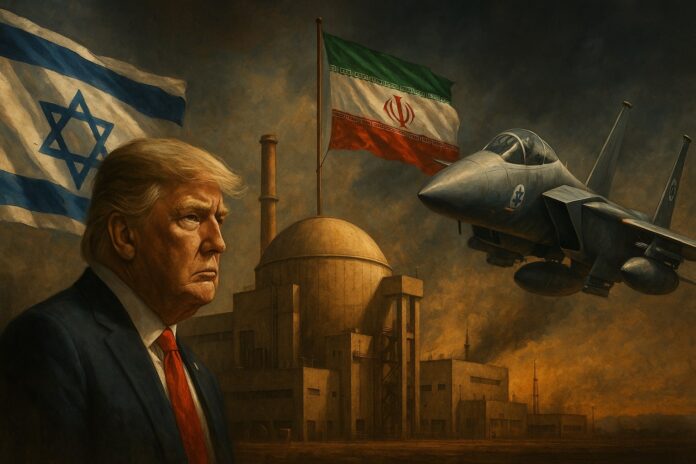Amid renewed diplomatic efforts between the United States and Iran, Israel has not ruled out launching a military strike against Tehran’s nuclear facilities in the coming months. U.S. President Donald Trump has expressed unwillingness to support such an operation for now, according to an Israeli official and two others familiar with the matter, as reported by media outlets citing government sources.
Israeli Prime Minister Benjamin Netanyahu has consistently asserted that Iran must never acquire a nuclear weapon, vowing that any negotiations must lead to the full dismantling of the Islamic Republic’s nuclear program. The matter has once again come to the fore following a recent White House meeting between Trump and Netanyahu, during which the U.S. president reportedly told the Israeli leader that Washington wanted to prioritise diplomacy over military action at this stage, The New York Times reported, quoting U.S. administration officials.
Despite Washington’s stance, Israeli officials remain sceptical of Iran’s intentions and the effectiveness of negotiations. According to local sources, senior Israeli defence and intelligence officials have been conducting internal assessments on the feasibility and implications of a potential strike should diplomacy fail to halt Iran’s nuclear ambitions.
Meanwhile, U.S. and Iranian officials convened in Rome for a second round of preliminary nuclear talks on Saturday, following initial discussions in Oman last week that both sides described as constructive. During these back-channel negotiations, Iran reportedly signalled its willingness to accept certain constraints on its uranium enrichment activities, though only under the condition of receiving firm guarantees that any new deal would be upheld by future U.S. administrations, Reuters quoted a senior Iranian official as saying.
The same official, speaking anonymously, emphasised that Tehran would never agree to dismantle its centrifuges or halt enrichment entirely. “Iran’s red lines, mandated by Supreme Leader Ayatollah Ali Khamenei, are non-negotiable,” he said, adding that Tehran would also refuse to scale back its stockpile of enriched uranium beyond the thresholds set in the 2015 nuclear deal, which Trump unilaterally withdrew from during his first term.
Iran also continues to reject any discussion of its ballistic missile program, viewing it as a non-nuclear issue that falls outside the scope of negotiations.
Despite these hardened positions, Iran appears open to a compromise. According to the dissident news outlet Iran International, which cited three diplomatic sources, Tehran proposed a three-stage framework during last week’s talks. The proposal would see Iran cap its enrichment activities to levels outlined in the original 2015 Joint Comprehensive Plan of Action (JCPOA) in exchange for phased relief from U.S. sanctions. Notably, U.S. chief negotiator Steve Witkoff was reported to have welcomed the offer, surprising the Iranian delegation with his initial openness, before hardening his public stance the following day by insisting that Iran must halt enrichment altogether.
President Trump reiterated on Friday that under no circumstances would he allow Iran to develop a nuclear weapon. “With Iran, they can’t have a nuclear weapon. And if they have a nuclear weapon, you’ll all be very unhappy because your life will be in great danger,” he told reporters in the Oval Office. The event was later cut short due to a medical emergency in the room.
The International Atomic Energy Agency (IAEA) has also stepped into the fray, with Director General Rafael Grossi warning during a visit to Tehran on Thursday that time is running out for the U.S. and Iran to reach an agreement. Tehran has indicated that it is prepared to work with the IAEA to demonstrate that its nuclear activities are for peaceful purposes.
While both Washington and Tehran continue to emphasise diplomacy, deep divisions remain on the key issues. As regional tensions simmer and Israel weighs its options, the coming weeks may prove decisive in determining whether dialogue can prevail over confrontation.




Very good https://is.gd/tpjNyL